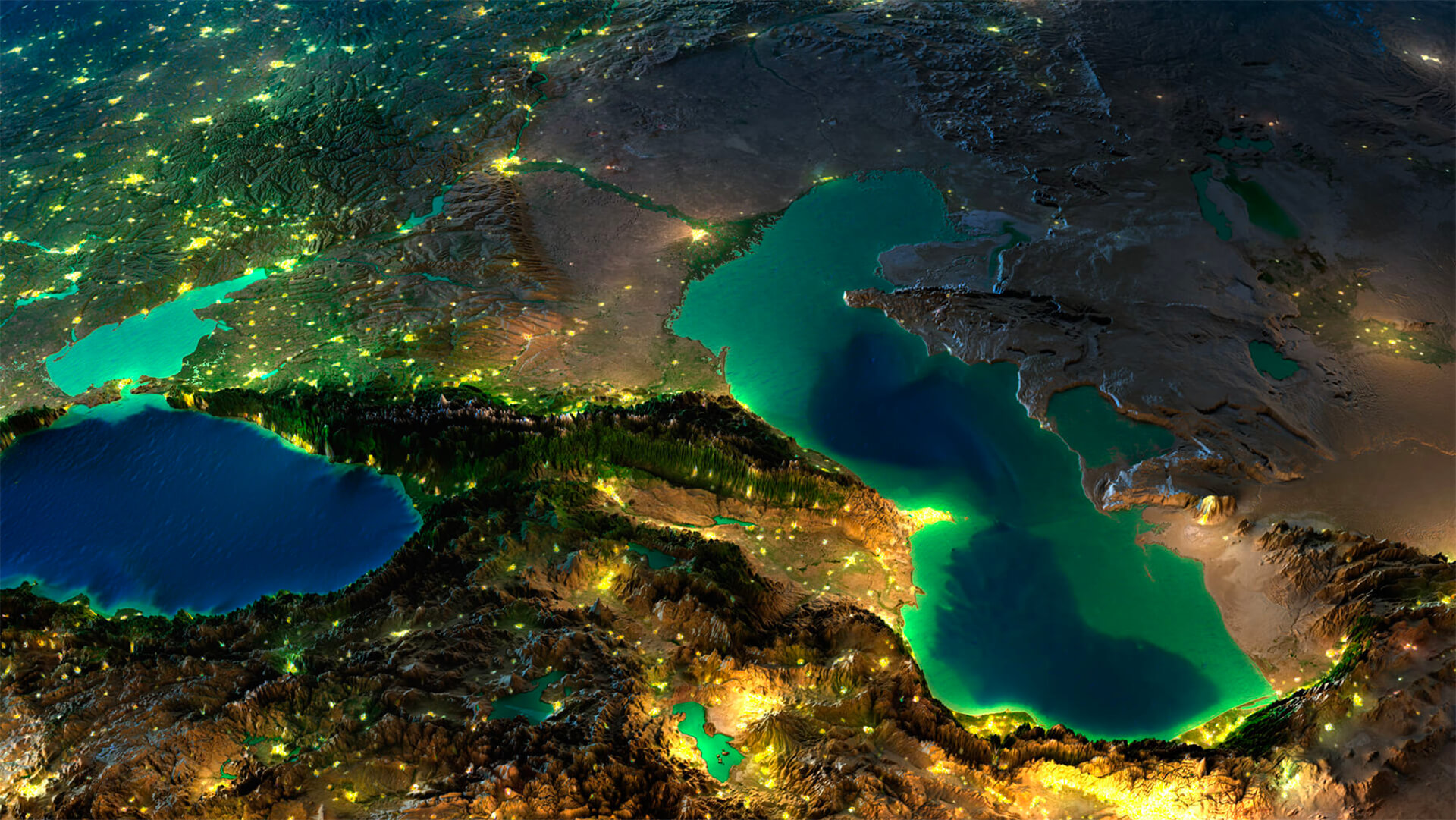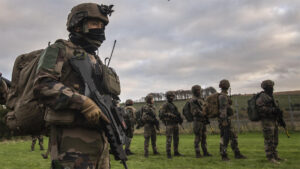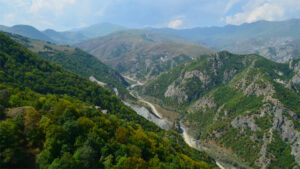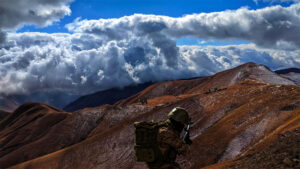Today, we’re looking at some of the recent developments and shifting dynamics in the South Caucasus. The assault on Armenian-controlled Nagorno-Karabakh appears to be a tidy victory for Azerbaijan, but there’s more at play here.
As Azerbaijan emerges as a regional power and adds to its economic and strategic advantages, Armenia is quickly realizing that Russia isn’t there to protect them. Armenia is grasping at straws for protection to avoid being entirely land-locked and cut off from the world. Some of Armenia’s adjustments would functionally end the relationship with Russia.
With all the movement in the region, I suspect this won’t be the last time we chat about Armenia and Azerbaijan.
Here at Zeihan On Geopolitics we select a single charity to sponsor. We have two criteria:
First, we look across the world and use our skill sets to identify where the needs are most acute. Second, we look for an institution with preexisting networks for both materials gathering and aid distribution. That way we know every cent of our donation is not simply going directly to where help is needed most, but our donations serve as a force multiplier for a system already in existence. Then we give what we can.
Today, our chosen charity is a group called Medshare, which provides emergency medical services to communities in need, with a very heavy emphasis on locations facing acute crises. Medshare operates right in the thick of it. Until future notice, every cent we earn from every book we sell in every format through every retailer is going to Medshare’s Ukraine fund.
And then there’s you.
Our newsletters and videologues are not only free, they will always be free. We also will never share your contact information with anyone. All we ask is that if you find one of our releases in any way useful, that you make a donation to Medshare. Over one third of Ukraine’s pre-war population has either been forced from their homes, kidnapped and shipped to Russia, or is trying to survive in occupied lands. This is our way to help who we can. Please, join us.
Transcript
Hey everybody. Peter Zeihan here coming to you from Colorado. It is the 21st of September. And in the last three days, we’ve seen like 30 years of history in the caucuses fall apart and reform. So a lot to unpack here. First of all, what are the caucuses? They’re a double series of mountain chains that are under the land bridge that connect to the former Soviet space and northern Eurasia to more classic Middle Eastern zone, such as Iran and Turkey and Mesopotamia.
These mountains, for the most part, go east west. They serve as significant blocks to movement in all directions, really. And there’s a number of different climate zones in there. You combine the climate zones with the mountains, you get a lot of minor powers, three of which have consolidated into semi coherent countries Azerbaijan, Armenian, Georgia. And then they’re surrounded by three much larger powers Russia, Iran and Turkey.
And between the very small ethnicities, the larger ones are the three small powers. And then, of course, the three mega powers. This place has always been a mess. It’s a zone that even the Mongols had some problems with. Anyway, geopolitics in this area has kind of been froze in since at least 1992. But arguably going back to the start of the Soviet system at the end of World War One.
But things are finally moving. And the whole point of this series is to give you an idea of what to see and where things are most likely to break, because in the last few days, something has very much, very much broken. What’s gone down is that the Azerbaijanis have launched a military assault on territory controlled by Armenia, territory that the Armenians have controlled since the end of the Soviet period back in the early nineties.
And in essence, the Armenian position has completely collapsed. The Azerbaijani appear to have achieved an unconditional victory. Now I would argue that taking the big picture into account here, an Armenian defeat was always inevitable. Has been for 30 years. Azerbaijan has independence, had three times the population and four times the economy. And that was before the regions became a major energy exporter, with them sending about a million barrels a day of crude in the European direction right now, as the region also has better partners.
It’s got its ethnic kin in places like Turkey. It gets along pretty well with the Europeans because of that energy. It’s seen as a bypass and as an alternative to the Russians who the Europeans now all see as warmongers. So the idea that Azerbaijan would emerge on top here isn’t really a surprise. The issue is that it took so long, and that is because of the Russians.
Russians strategic policy since the end of the Cold War has been about finding groups that it can leverage and turn into satellites and drive as wedges into different parts of communities or turn into roadblocks in the others. In this case, it’s definitely the roadblock argument. The Russians gave a blanket security guarantee to the Armenians in order to cause problems for the Azerbaijanis so that Azerbaijan could not emerge from under Russia’s shadow and become maybe a significant minor power in its own right.
As long as the Armenians under Russian sponsorship were able to occupy as a prisoner in the territory at the most one fifth of the entire country, then it was difficult for Azerbaijan to function and it made it questionable whether or not the Azerbaijanis could even qualify for the sort of investment that has generated the energy production that they have today, which has made Armenia a very weird place, because when you got a guy on the outside who doesn’t exactly have an interest in your own personal excellence, just using you as a pawn, and you know that there’s nothing economically or strategically or military or even diplomatically that you can really do to help yourself.
You kind of rest on their laurels. So for the last 30 years, Armenia has done really nothing but become poorer and less educated, more corrupt. The people with ambition and skills have left the country, but they remained active in the local politics, and so they would send money home and influence their new home countries in order to pressure international governments to help Armenia.
So the diaspora beyond Armenia became very, very robust in anti Azerbaijani operations, even though the Azerbaijanis were on the receiving end of the wars to this point. Well, that has all stopped as of the 20th of September. Azerbaijan has recaptured all of the territories lost, including an area called Nagorno-Karabakh, which is a sliver of mountainous territory, home to about 100,000 Armenians who it’s the best way to put this.
Nationalist Armenians consider Nagorno-Karabakh to be the birthplace of the Armenian nation, and it is now once again under Azerbaijani control. And as part of these forces surrenders to the Azerbaijanis, they have agreed already to be completely demilitarized. And the formal negotiations, which really at the end of a gun now to formally incorporate this into Azerbaijan proper with no autonomy have begun.
The end likelihood here is that the Azerbaijani will do to the Armenians the same thing the Armenians did to the Azerbaijanis and push them out so that they don’t have to worry about assimilating these people at all. There’ll be some drama in that later, but really all of the economic, diplomatic, strategic and military factors are now in play, and there’s really no where that the car of Armenians can go, and there’s only almost certainly that they can’t stay.
So it’s me. So let’s look at a map. Okay. We’re looking at a zoom in on the South Caucasus here. You’ve got southwestern Azerbaijan over there in the right and the bulk of Armenia over on the left. The capital of Armenia. Yerevan is just off the map right here. And the Russian military base that is officially in charge of guaranteeing Armenian security.
It’s a place called our Rumi. And I apologize, Armenians, I’m going to butcher all your names, but it’s actually off the side of the map. Like what? We’re about right here. Now, these green territories and these aquamarine territories, those are territories that the Azerbaijanis lost to the Armenians in the initial wars that happened as the Soviet Union was breaking up and culminating in a real hot war in 1994.
And these are territories the Azerbaijanis look to the international medias like look, they took a fifth of our territory. How can you not side with us? And the answer, of course, was the Armenian lobby in the United States and France are very, very powerful anyway. Bit by bit, we saw hotter and hotter circumstances until culminating in 2020 after years of the Turks providing the Azerbaijanis with military training and especially drones.
There was a lightning assault back in 2020 that lasted less than a month that basically obliterated every Armenian military asset that came into range of the Azerbaijani forces. And as part of the ceasefire, the Armenians had to give up the territories in green and the Azerbaijani just flat out conquered the aquamarine territories. And what that did is it left Nagorno, which is this little area, Nagorno-Karabakh, largely cut off.
There’s this little section down here called the locking corridor. And that was the only way that the Armenians were able to get supplies in and out. And so over the last two years, what the Azerbaijanis have done is they reestablished control of the real territories as they started impinging upon this access point. This is a very, very mountainous area and this map, obviously everything looks flat, but it was very easy for the Azerbaijanis to limit access.
And today, not only is there no functional road access, there’s no electricity going into Kabul as well, which is going to make it very, very easy for the Azerbaijanis to force the car of Armenians to be calm for Armenia proper or places elsewhere. So this whole zone, all of this which is now reclaimed territory, is Azerbaijani under international law, always has been, but now it’s under their de-facto control and they’re going to shape the cultures of the areas there to their liking, really with limited problems from anyone else.
Of course, just because this war is over doesn’t mean that all wars are over. And for the next trick, Azerbaijan has another problem. There’s this Exclave over here called Ivan Southern. Sorry, Azerbaijanis. I’m going to mispronounce your names too. And it is a again internationally recognized part of Azerbaijan. But as you can see, it’s not physically connected at all.
There’s a little sliver over here where it connects to Turkey, and that’s really their only link to the outside world, because there’s a de facto embargo in both ways and along this entire border, as well as along this entire border. So the next phase for the Azerbaijanis will be to assert some degree of control over this road here, or maybe even this road up here in order to get direct, unending access to their enclave.
Now the Armenian government realizes just how screwed they are, because that’s a couple of things here of change. Number one, the Turks have put their fingers on the scale with those drones, and that’s something the Armenians cannot stand up to at all. Second, the Russians, who have been at least nominally the security guarantors for the Armenians for the last several decades, well, they’re kind of busy in Ukraine.
They’ve actually thinned out the troops they have in Armenia, and they’ve proven completely incapable of helping the Armenians at all. So if you’re in Armenia and you realize that your eastern border with Azerbaijan is blocked and hostile, your western border with Turkey is blocked and hostile. And your northern one was with Georgia, who is at most going to be neutral.
And the Azerbaijanis are looking at cutting this link with Iran, which is your last remaining outlet. You’re on the verge of being landlocked and surrounded by hostile states on all sides. That’s not feasible for a country that has less than 3 million people and no economy to speak of. So they know they had to give up Nagorno-Karabakh and they know they have to accept the terms of Azerbaijan.
They know they have to be proactive in offering Azerbaijan access to their other enclave, which means all of a sudden you can get regular Turkish military going through the enclave, through southern Armenia, into Azerbaijan and back. They realize that the very existence of Armenia as a state is now physically under threat, and it’s only them rolling over very energetically that they might be able to throw themselves at the mercy of their would be conquerors.
That’s a problem. That’s a difficult position to be in. So the Armenian government has to go out of their way to find a way to make this work, because if they wait for Azerbaijan to be ready for the next conflict, they’re hosed. So the Armenian government has not simply quietly accepted all of the circumstances around them. And not only are they speaking with the Turks about normal relations, they have started ratifying the International Criminal Court conventions.
The idea, from their point of view, is that at least this way we get a layer of international law in place that might be able to protect Armenia as a state and Armenians who remain in trouble with some sort of international legal action. It’s a bit of a reach, but it’s all they’ve got to work with because the Russians are now useless.
But as part of ratifying the ICC, that means they have to abide by things like arrest warrants that the ICC issues and an arrest warrant has been issued for none other than Russian President Vladimir Putin. And I’m sure, I’m sure, I’m sure some of you guys are going to start screaming about the United States on this. The United States is not a signatory to the ICC.
This is the rest of the world because, you know, when you launch a war and start bombing civilians and setting up rape clinics, that’s usually considered legal. And so the security guarantor for the Armenians is now internationally wanted. And Armenia’s only road for that they can see means severing the relationship with the Russians completely. This is something they can do because they don’t have a choice.
Again, they’re ringed by potentially hostile countries. The only way that the Russians can bring forces in and out are, ironically, through those hostile countries Azerbaijan and more likely, Georgia. But the Georgians have a choice that the Russians are occupying, too. So that’s not exactly something that the Georgians are really eager to do. This is what it looks like when history starts moving again.
We’ve had three decades of the Russians holding this all at bay and it’s all breaking free all at once. And this isn’t the only place that Russian power is failing and allowing the logjam to finally break free. This isn’t the only place we’re going to be seeing rapid historical level shifts, and for the next one, we have to turn to Chechnya.








